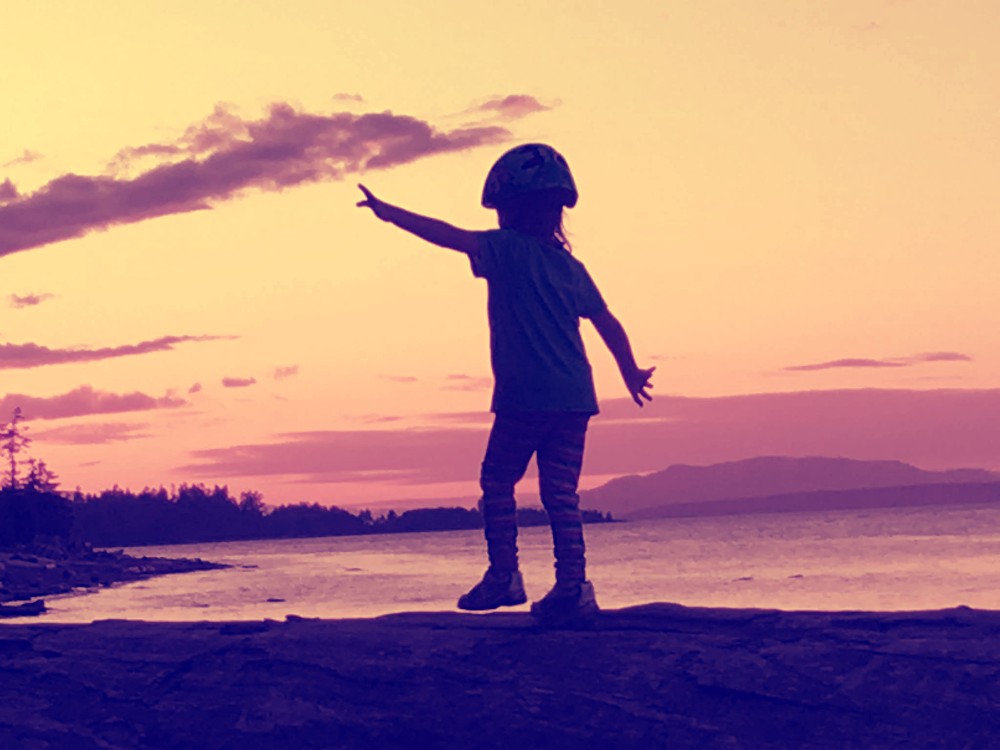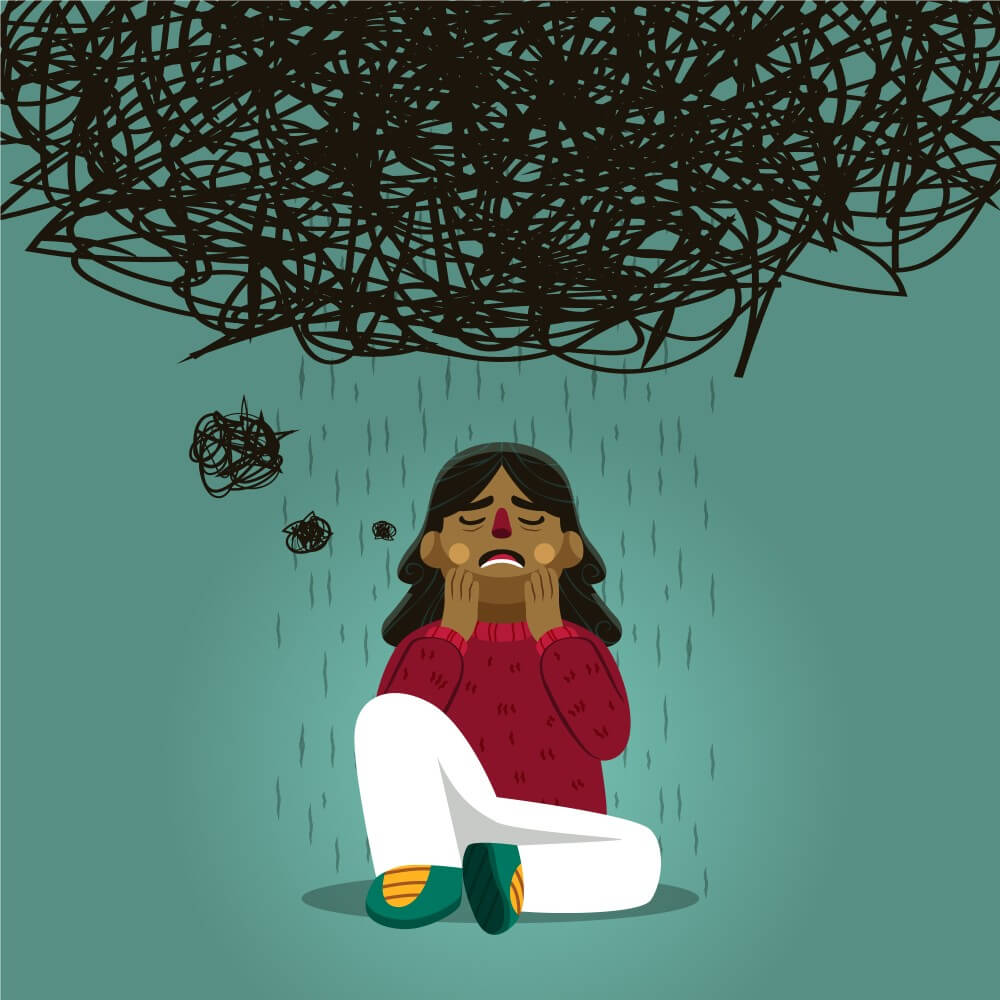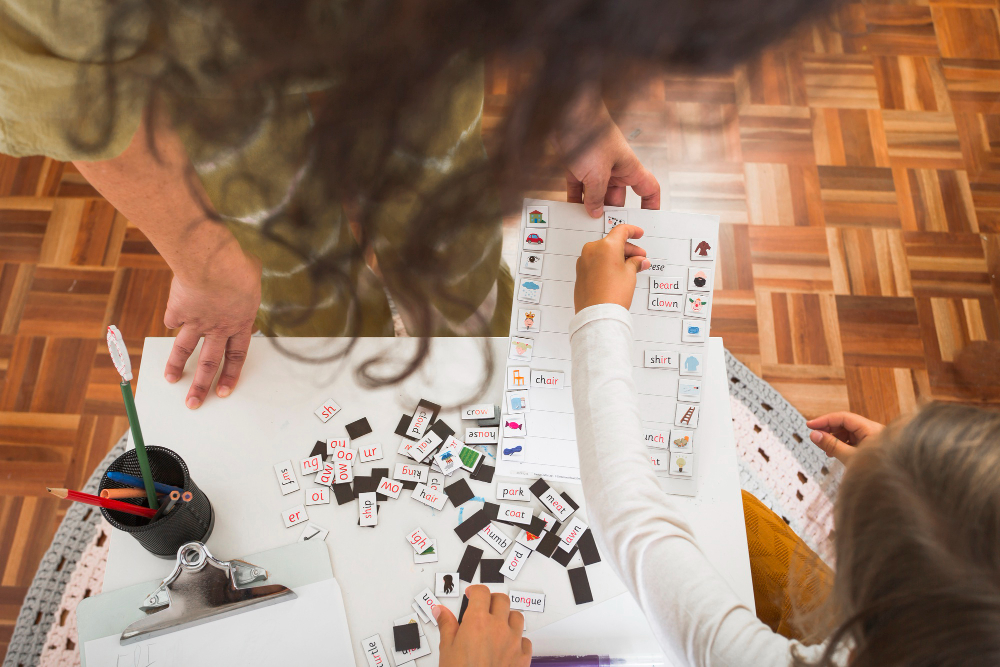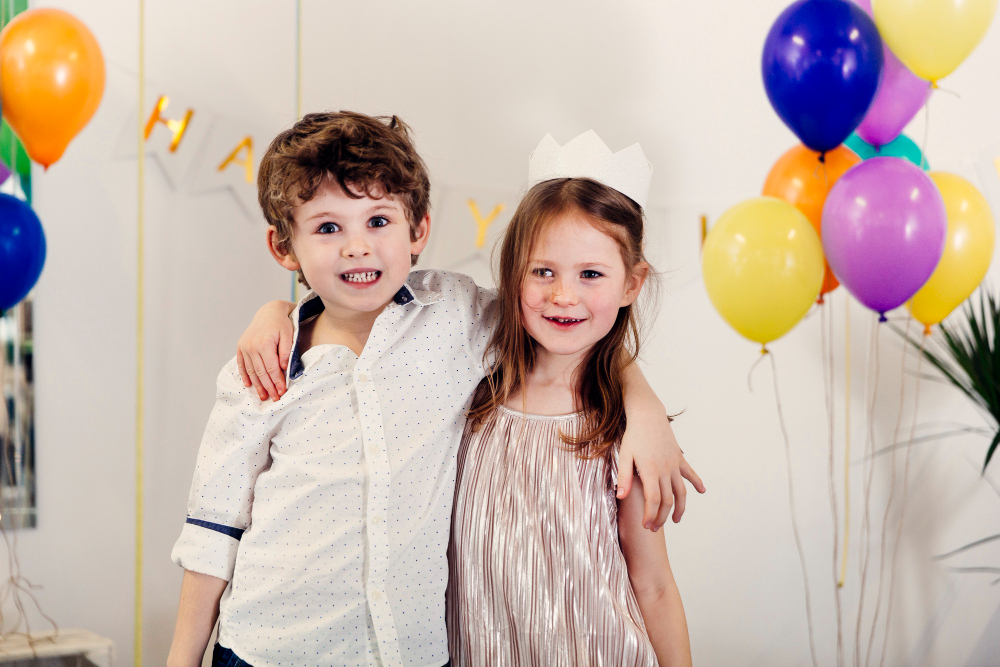Content note: This piece includes references to suicidality and self-harm, as that is part of my lineage. If you would prefer to avoid these themes, skip the section titled All the men died young.
I have spent far too many years explaining how my child is likable—how he is intelligent and curious and full of sharp, tender insight—in the hope that doing so would make his pain legible to people who otherwise wouldn’t care. I have written emails that softened the truth, sat in meetings where I tried to sound collaborative, and told stories that made him easier to understand, more palatable, more relatable—less inconvenient.
I wasn’t going to do that here, but the compulsion runs deep.
He is one of the most intelligent and sweetest people I know. He sees things others miss, remembers small kindnesses, asks questions that surprise grownups. He is not broken. He is a child who was harmed, who deserved better.
The system eats its own
There is a certain kind of child—intuitive, emotionally articulate, wired with a startling perceptiveness about power and tone, about coercion and choice, about the invisible terms of adult authority—whose presence in the classroom becomes, almost immediately, a threat to the institution’s rhythm, a disruption to its hierarchy, a mirror held up to its limitations. And this child, often autistic and often demand-avoidant, is not refusing to comply out of stubbornness or manipulation or wilful misbehaviour—though the professionals in the room may whisper those words with great confidence and far less accuracy—but because their nervous system recognises pressure as danger, even when it’s dressed in the politeness of school expectations.
Pathological Demand Avoidance, or PDA, is the name some of us use to describe this reality. But in British Columbia, the label is often denied outright. Our province’s foremost centre of excellence for autism support in education, Provincial Outreach Program For Autism & Related Disorders (POPARD) refuses to recognise it entirely, and even when PDA is printed clearly on the first page of an autism diagnosis report, as it is in my son’s case, schools will not write it down, will not make space for it within the existing designation categories, as though this diagnosis were not a description of need but a challenge to their pedagogy itself—an unwelcome truth that risks unsettling their carefully arranged belief in what autism is allowed to be.
And so, instead of care, these children are offered behavioural plans; instead of understanding, they are offered suspicion; instead of accommodation, they are offered consequences. The very thing they need most—relational safety and control over their own body and time—is treated as a disruption to order.
A body built for refusal
To survive in school, a demand-avoidant child must contort. They must mask. They must comply with rituals that violate their nervous system’s baseline, and when they can’t—when they shut down, lash out, withdraw, or resist—they are pathologised by the very system that never made room for their truth in the first place. But this is not oppositional defiance. It is a trauma response. It is intelligence. It is the body saying no before the mouth can form the words. It is a child protecting their dignity, often at great cost.
These are the children who rip sticker charts into a thousand pieces. They are the ones who seem fine until they aren’t—until the trust fractures, until the polite mask collapses, until the careful scaffolding of relational safety dissolves into the cold language of “non-compliance.”
And often, the parent is blamed.
I remember the scoff
I remember sitting in my son’s kindergarten transfer meeting—deliberate, careful, already weathered by the effort of explaining what should have been understood intuitively—and trying, once again, to speak plainly about what he needed in order to remain regulated and safe.
I explained that his nervous system responded best to connection, that autonomy wasn’t an indulgence but a lifeline, that a soft voice and a declarative sentence did more for him than any structured reward system ever could.
And someone in the room—someone with a title, a lanyard, a voice that held institutional weight—scoffed. That soft, sharp breath of dismissal—not quite a laugh, not quite a sigh—just a single sound that said everything: You are being ridiculous. You are the problem. This is not real.
And I felt, in that moment, the enormous clarity of being disbelieved.
The grief of asking for too little
What I have asked for has always been small. So small, in fact, that it humiliates me to remember how often it was denied. I didn’t ask for program redesign or budget allocation or one-on-one support every hour of the day. I asked for adults to say things like “Your shoes are by your cubby” instead of “Can you go get your shoes now?” I asked for “I’ll be at the table when you’re ready” instead of “Are you coming or not?” I asked for tone—just tone—to be considered part of the environment. I asked for adults to remember that questions can function as demands, and that for a child with a body coded to resist pressure, even a well-meant query can feel like a trapdoor.
The cost of this refusal—to soften, to shift language, to give a child space to stay whole—was measured in years of collapse. And I am still measuring it now.
Niceness doesn’t count
Niceness doesn’t count. In fact, niceness is often worse than cruelty, because it disguises coercion as care and expects the child to thank you for it.
My son sees through it instantly—he is a canary in the coal mine of adult performance, a child with such sharp, precise perception that he can spot manipulation in the curve of a smile or the tilt of a voice.
When someone says something sing-songy and sweet—“Let’s make a good choice now, okay buddy?”—as if compliance were affection, as if power delivered with a grin is somehow benign, he doesn’t feel safe.
He feels trapped. And when he feels trapped, he wants to run, or scream, or lash out—because his body knows it’s being cornered by something false.
That’s what niceness is to him: a lie wrapped in ribbons. It insults his intelligence. It violates his autonomy. It weaponises tone to mask control.
I think that’s why he tried to strangle the kindergarten teacher, though I’m not sure I’ll ever really know why.
-
Anxiety is not an overreaction: why neurodivergent distress demands a different response
There is a kind of anxiety that rises up like a wave—not sudden, not irrational, not the result of faulty thinking or poor coping, but steady, cumulative, and earned. A body that has learned the world is not safe, not soft, not designed…
-
Why sticker charts fail
Sticker charts and other incentive-based systems promise to motivate children through tangible rewards, yet they too often undermine genuine engagement by teaching students to focus on external validation rather than on the inherent value of learning or participation. When a child’s behaviour is…
Accusation dressed as care
Teachers and support staff often think they’re being relational when they say, “Hi buddy, how are you today?” or “What are you hoping to accomplish today?” or worse, “What did you think would happen when you did that?”
But to a demand-avoidant child, those seemingly warm and familiar words are anything but neutral—they are pressure in disguise, subtle traps that demand a correct answer without revealing the rules, where even silence is cast as defiance and what appears as friendly engagement is, in truth, an adult power game dressed in the soft costume of relational care.
What works instead is language that requires no performance—statements like “Shoes are by the door,” or “Lunch is on the table,” or “I’m glad to see you”—no reply expected, no pressure applied, the nervous system left intact.

The grief that doesn’t end
Now, years later, my son rarely leaves his bed, and though I try to speak about it plainly, what I most often feel is the urge to scream at the system that made me promise he would be safe and then stripped him of every tool to keep that promise.
I remember the meetings, the smiles, the eye-rolls barely concealed behind professional restraint, the patronising “That would be nice” offered in response to requests so modest they still humiliate me in retrospect; I remember how simple the asks were—shifts in tone and relationship style. I remember, too, how vast the cost became when those requests were refused.
What I carry now is not only grief, though it floods me daily, but rage as well, steady and sharp, because this collapse was avoidable, it is still happening to children, and the people with power have never had to reckon with the damage their disbelief has caused.
I write about rage a lot now.
When someone I love blamed the screen
There was a moment when someone I love and trust, someone whose voice still carries a kind of weight in me, told me that my son’s withdrawal from the world was probably because he was addicted to his iPad.
And something inside me shattered, because I had hoped that she might see the truth without needing to be convinced. I had hoped that she would understand what we were going through. That she would know the difference between permissiveness and attunement.
And then she spoke of someone else—someone in her extended family who still lived at home—and judged him, gently but clearly, a failure. She described how his mother depended on him for many things. How he hadn’t moved out, as if this was a little shameful. And I realised, listening to her, that what she feared most was vulnerability. That her words weren’t really about my son or that other boy—but about herself. About the life she didn’t get to live because she became disabled.
She had worked in healthcare and after a devastating outcome, her nervous system couldn’t return. She never practiced again. And I think, now, that the judgment she offers to others is the price she pays for not collapsing in front of us. That her shame is loud because her grief has nowhere else to go. Ableism and self hatred leaking into our conversation.
But still—her shame is not mine to carry. Her assumptions are not my measure of love. I will be OK, if he never wants to leave my home. I just hope he’ll resume bathing regularly and brushing his hair again soon.
-
On graduation and the grievability of disabled children
I’ll try to be normal at my daughter’s graduation, even as I grieve a system that quietly erased her twin and expects no one to notice.
The moment I almost gave up
There was a night a few months ago, when I was trying to coax my son to brush his hair, pleading with him. My son escalated to a place that terrified me, and I called the police—because I didn’t know what else to do. I was afraid. For him. For myself. For what would happen next. And in that moment, a thought rose in me that I still find hard to admit: When he turns 18, I’ll be done. I’ll have to kick him out. I can’t do this forever.
And then it passed. But the shame did not.
What I know now is that the thought wasn’t betrayal—it was exhaustion, the outermost edge of what my nervous system could hold after years of being the one to notice, to warn, to soften, to explain, and still be ignored; it was also grief—grief for a culture that offers no net for families like mine, no buffer, no early support, just a waiting game until the child is too big, too loud, too “unsafe” to be interpreted as anything but a threat.
Now, after eight years inside the public system, after all the small signals he tried to send—the flinches, the refusals, the glances toward the door that meant I don’t feel safe here—after those were brushed aside as inconvenient, he has grown taller than me, and when he’s in a rage, he punches the walls and they shudder, he slams the doors and the floorboards shake, and I imagine what it would do to my face if the next blow missed the drywall and landed on me instead, the sound of bone folding inward, and I think: this is what abandonment looks like, this is institutional betrayal.
Still, the next morning, I woke up ashamed because I had not been a mature adult, I felt. I cried and called the police on a child. My guilt is like a heavy blanket. I involved the system and now I have to call the social worker and the paediatrician, and pretend I am composed, explain without sounding unstable.
They will be understanding because they know how difficult things have become and no one—no one—wants to deal with people like my son. I wince at that thought, before I make the calls, pulled between the urgency to call and anger flaring in my chest that our systems don’t consider my child grievable. He’s not broken he’s just been institutionally harmed, I say out loud. Parenting isn’t hard, parenting in your bullshit system is hard. I get out my fuck yous and place the calls.
Things will get easier, the longer he’s not in school.
The fantasy of escape
There were nights I imagined fleeing with him—disappearing to a country beyond reach—because the damage was already unfolding and the people meant to protect him had chosen disbelief instead, and when I voiced that thought aloud, my lawyer gently discouraged it, reminding me I would be framed as a criminal and exiled from my family of origin, unable to return as they aged and needed care, and I remember almost seeing it—a scale, trembling in my mind, with my family on one side and my son on the other, and my heart suspended in the centre like a torn hinge, trying to balance the impossible weight of love divided by borders and law.
When grief has no villain
Sometimes the grief that breaks me most comes from far away—like when I read about the girls who died at summer camp in the Guadalupe River, and the staff who tried to save them, and the invisible network of labour that made the camp possible—trailer park workers, cleaners, cafeteria staff.
Natural disasters undo me, because they make no sense to a nervous system wired for justice and truth. And school systems, when they erase children like mine, feel like disasters too. Slow, preventable, bureaucratic floods.
All the men die young
My grandfather was Bipolar, and sometimes I wonder whether the shape of my own storms—the rage, the sorrow, the piercing clarity—is a modern iteration of his suffering.
Maybe he wasn’t entirely monstrous, so much as brilliant in a time that offered no language for his fire, no structure to contain the scale of his pain, shaped instead by years of enduring a world that punished sensitivity as weakness and intelligence as insubordination, until the sharp edges of his mind turned inward.
My uncle—gentle, six foot seven, consistently misread—tried to hang himself again and again before eventually drinking himself to death, easing his descent with sugar until he collapsed into a diabetic coma, one more man in a lineage of men whose grief found no exit and instead devoured them from the inside.
And maybe what I’m doing now, writing these truths and refusing to dilute them, is the unfinished work left suspended in my bloodline, finally given breath—an incantation, a rebellion, a prayer that my son will live if I offer shelter? A prayer that DNA might repair if the environment is optimised.
I only ever wanted to be with my baby
At first, writing these posts felt like relief—like finally breathing deeply after the lingering heaviness of a chest infection lifts, like the return of control to my own hands as I insist, sentence by sentence, on telling our story without the framing the school system requires, without the softening or translation that makes it easier for others to tolerate. For a while that insistence felt like movement, like power, like clarity gained.
Now, I am in the pain plateau, the long middle place where I thought it would get better, thought the tears would ease, thought the body would find a rhythm again, and instead it has stayed sharp, stayed tender, stayed unfinished, and maybe that is the work now—to remain with it, to feel without fleeing, to honour it by not silencing it simply because it has lingered too long.
Even in the hardest moments—even when I whispered unspeakable thoughts into the dark—what I wanted has always remained the same: to be with my child, to protect him with every fibre I have, to walk through fire if I must, though I still hold the quiet hope that maybe, just maybe, I won’t have to.










